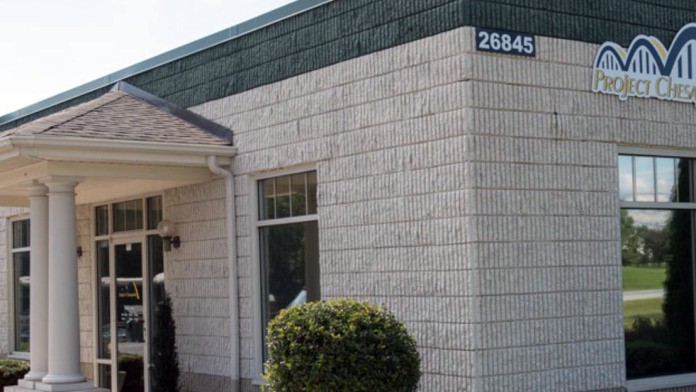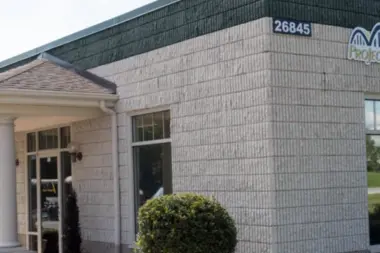Great staff everyone there are very helpful, I was there for a while and they renewed my life and my thoughts. I am a better person now.
About Project Chesapeake
Project Chesapeake in Leonardtown, Maryland specializes in accredited outpatient support for addiction, mental, and behavioral health issues. Support is available to teens and adults with gender-specific care provided for clients aged 18 and older. Medicaid is accepted along with other private health insurance plans and self-pay.
DUI Support and Outpatient Addiction Treatment Services
Clients can access outpatient drug rehab services at varying levels of intensity with comprehensive assessments provided to help categorize and steer them toward the correct support for their situation. Similarly, traditional and intensive group therapy sessions are also provided, along with specialized tracks for teens.
DUI/DWI education programs are also provided for individuals who may have gotten into legal trouble as a result of drinking or illicit drug use while driving. These are offered at level 0.5.
Medication management services are also available for both psychiatric care and substance abuse issues. Meanwhile, buprenorphine maintenance for opioid addiction is also offered through medication-assisted treatment (MAT).
The facility is private, comfortable, and secure. It provides an ideal backdrop for anyone who’s serious about tackling their recovery journey. All clients can expect to be guided by a personalized recovery plan no matter which stage they’re at.
Mental Health Support and Other Specialized Services
Dual diagnosis support is available to individuals struggling with concurrent mental health issues, along with a targeted psychiatric rehabilitation program (PRP). This is designed to help individuals develop coping strategies and skills for independent functioning.
Anger management sessions are also provided, along with specialized support groups and therapy services for survivors of domestic violence and abuse.
Latest Reviews
Rehab Score
Gallery


Other Forms of Payment
Private insurance refers to any kind of healthcare coverage that isn't from the state or federal government. This includes individual and family plans offered by an employer or purchased from the Insurance Marketplace. Every plan will have different requirements and out of pocket costs so be sure to get the full details before you start treatment.
Self-pay involves paying for treatment out of your own pocket. You can use savings or credit, get a personal loan, or receive help from family and friends to fund your treatment. If you don't have insurance or your insurance plan doesn't cover a specific program, self-pay can help ensure you still get the care you need.
Financial aid can take many forms. Centers may have grants or scholarships available to clients who meet eligibility requirements. Programs that receive SAMHSA grants may have financial aid available for those who need treatment as well. Grants and scholarships can help you pai for treatment without having to repay.
Medicaid is a state based program that helps lower-income individuals and families pay for healthcare. Medicaid covers addiction treatment so those enrolled can use their coverage to pay for rehab. When a program accepts Medicaid the client often pays very little or nothing out of their own pocket.
Medicare is a federal program that provides health insurance for those 65 and older. It also serves people under 65 with chronic and disabling health challenges. To use Medicare for addiction treatment you need to find a program that accepts Medicare and is in network with your plan. Out of pocket costs and preauthorization requirements vary, so always check with your provider.
Addiction Treatments
Levels of Care
This program focuses on education, self-diagnosis, defense mechanisms, development of a sober support network, and relapse prevention. The series typically runs for 26 weeks (if clinically appropriate) for adults who have experienced some negative consequences from their substance abuse. As a cornerstone of Project Chesapeake’s overall mission, they’re proud to offer this service to adults in need. Participation requires specific individualized treatment plan objectives be met prior to discharge.
In some cases, traditional outpatient care is not appropriate for individuals with more severe chemical dependency problems. When this is the case, they offer their Intensive Outpatient program, their most intense level of outpatient counseling. This service is a unique combination of group and individual counseling lasting a total of nine or more hours per week. Intensive Outpatient works to stabilize the client and to begin teaching the tools of recovery. In order to better accommodate the needs of the client, Intensive Outpatient groups are offered in the morning and the evening. This allows the client to access treatment while still maintaining family and work schedules and meeting obligations that solidify behavior change, thus breaking the cycle of substance abuse.
Treatments
The goal of treatment for alcoholism is abstinence. Those with poor social support, poor motivation, or psychiatric disorders tend to relapse within a few years of treatment. For these people, success is measured by longer periods of abstinence, reduced use of alcohol, better health, and improved social functioning. Recovery and Maintenance are usually based on 12 step programs and AA meetings.
Once a person has become addicted to a substance, drug rehab in Maryland is often necessary to overcome that addiction. These programs provide the tools individuals need to manage the physical, mental, and emotional issues involved and begin a successful recovery journey.
A combined mental health and substance abuse rehab has the staff and resources available to handle individuals with both mental health and substance abuse issues. It can be challenging to determine where a specific symptom stems from (a mental health issue or an issue related to substance abuse), so mental health and substance abuse professionals are helpful in detangling symptoms and keeping treatment on track.
Programs
Adult rehab programs include therapies tailored to each client's specific needs, goals, and recovery progress. They are tailored to the specific challenges adult clients may face, including family and work pressures and commitments. From inpatient and residential treatment to various levels of outpatient services, there are many options available. Some facilities also help adults work through co-occurring conditions, like anxiety, that can accompany addiction.
Young adulthood can be an exciting, yet difficult, time of transition. Individuals in their late teens to mid-20s face unique stressors related to school, jobs, families, and social circles, which can lead to a rise in substance use. Rehab centers with dedicated young adult programs will include activities and amenities that cater to this age group, with an emphasis on specialized counseling, peer socialization, and ongoing aftercare.
Clinical Services
Cognitive Behavioral Therapy (CBT) is a therapy modality that focuses on the relationship between one's thoughts, feelings, and behaviors. It is used to establish and allow for healthy responses to thoughts and feelings (instead of unhealthy responses, like using drugs or alcohol). CBT has been proven effective for recovering addicts of all kinds, and is used to strengthen a patient's own self-awareness and ability to self-regulate. CBT allows individuals to monitor their own emotional state, become more adept at communicating with others, and manage stress without needing to engage in substance abuse.
Group therapy is any therapeutic work that happens in a group (not one-on-one). There are a number of different group therapy modalities, including support groups, experiential therapy, psycho-education, and more. Group therapy involves treatment as well as processing interaction between group members.
This is a process through which clients work one-on-one with a trained counselor, in a safe, caring, and confidential environment to explore their feelings, beliefs, or behaviors, work through challenging or influential memories, identify aspects of their lives that they would like to change, better understand themselves and others, set personal goals, and work toward desired change. People seek counseling for a wide variety of reasons, from coping with major life challenges or childhood trauma, to dealing with substance abuse and simply desiring personal growth and greater self-knowledge.
Amenities
-
Residential Setting
Accreditations

The Commission on Accreditation of Rehabilitation Facilities (CARF) is a non-profit organization that specifically accredits rehab organizations. Founded in 1966, CARF's, mission is to help service providers like rehab facilities maintain high standards of care.
CARF Accreditation: Yes
Contact Information
26845 Point Lookout Road
Suite 1
Leonardtown, MD 20650